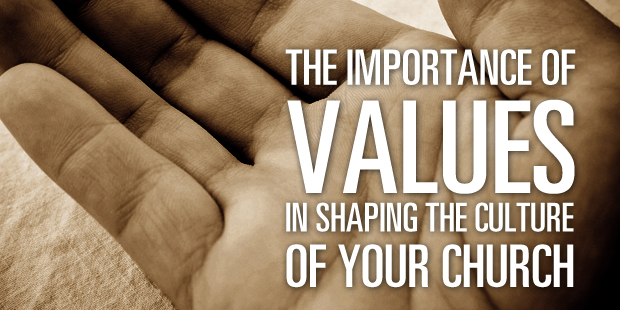
The Importance of Values in Shaping the Culture of Your Church
Four Values and Four Principles
1) God values people. He values them so much He would leave the 99 who are safe and healthy to go after a single one who is lost.
2) Clearly, Jesus is the Father’s highest value. Sending Christ to us was His way of telling us we are valuable—so valuable that He gave us what was most valuable to Him.
3) God also values ministry. Jesus says that the Father was like a man who found a treasure in a field. Because He so valued it, He sold everything He had so He could buy the field. In the same chapter, Jesus says that the field in this parable was the world. (See Matt. 13:44.) We see how God values ministry to a lost and dying world.
4) Finally, God values the passing of each day. To Him, each day is an invitation to receive His forgiveness and mercy. His mercies are indeed new every morning. Each day is an opportunity to repent from one’s wayward ways and turn to God and become His follower.
Church leaders who are clear about what God values can then apply the following corresponding principles to make disciples.
- Because people are valuable, we must engage them with the intent of leading them to Christ.
- Because Jesus is most valuable, we must then establish the foundation of Christ in people’s hearts.
- Because ministry is valuable, we must equip all believers to minister.
And because every day is a valuable opportunity to reach people with the gospel, we must empower all believers to go and make disciples.
Structure Follows Culture
Knowing that creating a discipleship culture is and should be our church’s first priority, it’s vital to understand that structure follows culture. You could say that culture is the wine, and structure is the wineskin. Or that culture is the electricity and structure is the wires and cables the electricity flows through so that it functions effectively and efficiently. Structure allows the culture to be reproduced. This is where organization, systems and processes come in; they work together to achieve the values.
When I start to really examine our church and how it functions, I’m always intrigued by how we’ve managed to build a culture that led to the principles of discipleship, which in turn have become the very same process we focus on as we make disciples. Our members clearly know that 1) we must all engage our families and friends with the intent of making them followers of Christ; 2) we must establish them in the foundation of Christ; 3) we have designed training and equipping programs to make them confident and competent as ministers; 4) they are empowered as the Holy Spirit works in their lives to go and make disciples each and every day.
It is my hope and prayer that these ideas will inspire all of us to evaluate our churches, define our values and build churches based on a culture of discipleship.

Tags: Joey Bonifacio, Values, Vision Frame












